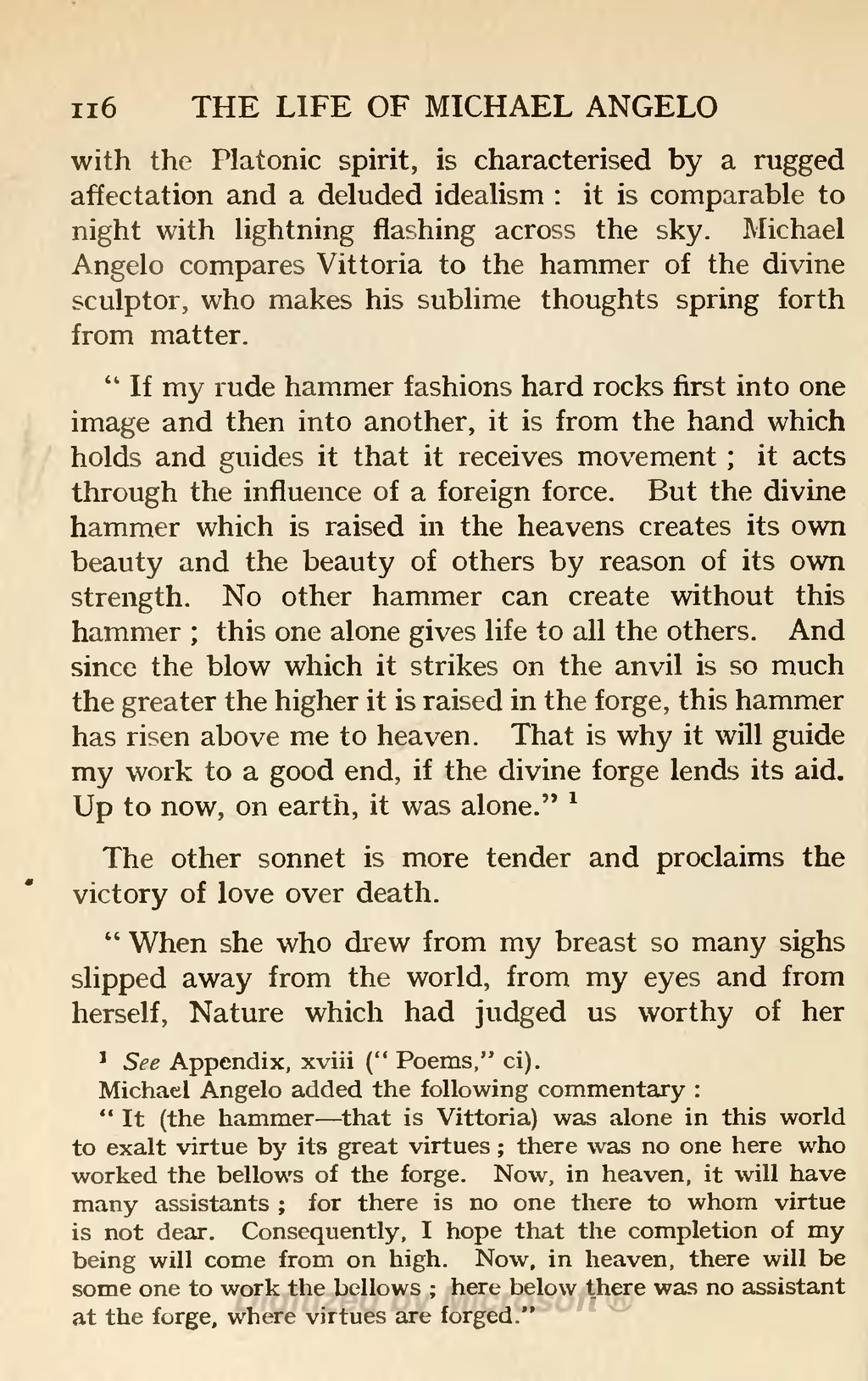with the Platonic spirit, is characterised by a rugged affectation and a deluded idealism: it is comparable to night with lightning flashing across the sky. Michael Angelo compares Vittoria to the hammer of the divine sculptor, who makes his sublime thoughts spring forth from matter.
"If my rude hammer fashions hard rocks first into one image and then into another, it is from the hand which holds and guides it that it receives movement; it acts through the influence of a foreign force. But the divine hammer which is raised in the heavens creates its own beauty and the beauty of others by reason of its own strength. No other hammer can create without this hammer; this one alone gives life to all the others. And since the blow which it strikes on the anvil is so much the greater the higher it is raised in the forge, this hammer has risen above me to heaven. That is why it will guide my work to a good end, if the divine forge lends its aid. Up to now, on earth, it was alone."[1]
The other sonnet is more tender and proclaims the victory of love over death.
"When she who drew from my breast so many sighs slipped away from the world, from my eyes and from herself. Nature which had judged us worthy of her
- ↑ See Appendix, xviii ("Poems," ci).Michael Angelo added the following commentary:
"It (the hammer—that is Vittoria) was alone in this world to exalt virtue by its great virtues; there was no one here who worked the bellows of the forge. Now, in heaven, it will have many assistants; for there is no one there to whom virtue is not dear. Consequently, I hope that the completion of my being will come from on high. Now, in heaven, there will be some one to work the bellows; here below there was no assistant at the forge, where virtues are forged."

